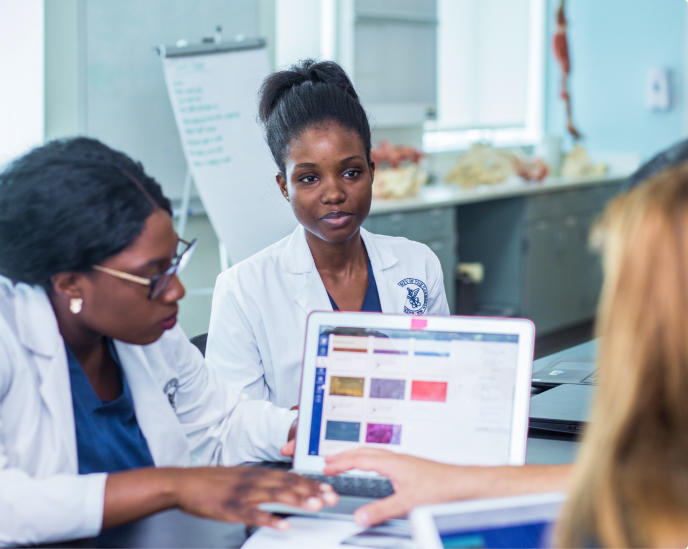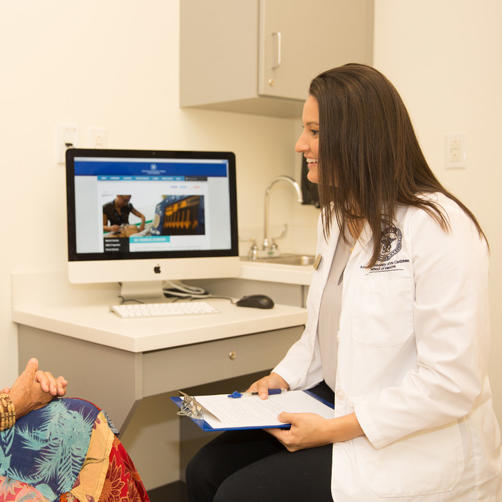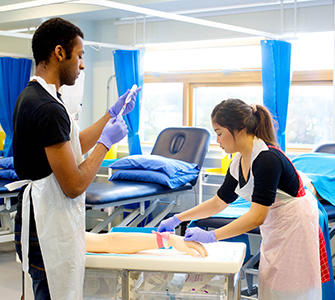Preventive medicine aims to prevent disease, disability, and death by taking a proactive approach to medicine. Preventive medicine physicians provide advice, suggestions, and recommendations to help patients maintain or improve their health and wellness. They can help patients develop healthy habits, break old habits, and reshape their approach to wellness.
While all doctors practice preventive medicine to varying extents, preventive medicine physicians are the leading experts. They are trained in epidemiology and biostatistics as well as behavioral, social, and economic sciences. They use their knowledge of disease and rates of disease or injury within specific population segments to better educate patients.
Preventive medicine physicians work to reduce health complications for individuals, companies, communities, workers, and more.
Because it includes expertise in population health, preventive medicine bridges clinical practice and public health.
Why is Preventive Medicine Important?
Preventive medicine physicians focus on disease prevention and health promotion to try to keep people—and entire communities—from getting sick.
The United States Centers for Disease Control and Prevention (CDC) lists 2021’s top five leading causes of death, excluding COVID-19, as:
- Heart disease (695,547 deaths)
- Cancer (605,213 deaths)
- Accidents (224,935 deaths)
- Stroke (162,890 deaths)
- Chronic lower respiratory diseases (142,342 deaths)
Most of these causes can have genetic factors. However, they can also be linked to behaviors, environments, and other chronic conditions. Preventive medicine physicians take these factors into consideration when creating treatment plans for their patients.
Preventive care can be as simple as undergoing regular health screenings, making annual visits to the doctor or staying current with immunizations. Having regular health screenings helps physicians detect health conditions during their early stages. Patients are more likely to have positive outcomes if their condition is diagnosed and treated early.
Focusing on preventive care can also help patients and communities:
- Save money
- Improve quality of life
- Develop and maintain healthy habits
- Reduce risk of chronic illness and disease
Preventive Medicine Specialties
Preventive medicine physicians may specialize in aerospace medicine, occupational medicine, or public health and general preventive Medicine.
Aerospace Medicine
Aerospace medicine aims to maintain the health and well-being of those working in extreme environments. Those environments are often remote and can place workers under extreme physical and psychological stress. Aerospace medicine physicians are trained in microgravity, radiation exposure, and hypoxia to provide optimal care for aviators and astronauts.
Occupation and Environmental Medicine (OEM)
Occupational and environmental medicine (OEM) aims to maintain the health and well-being of workers. These workers may work in high-risk environments, such as chemical factories or radiation plants, which may negatively impact their health. OEM specialists assess ergonomic, chemical, biological, and physical hazards to create worksite programs designed to minimize injuries and illness.
Public Health and General Preventive Medicine
Public health and general preventive medicine aims to maintain the health and well-being of individuals and communities. This specialty combines advocacy and clinical care to improve health outcomes for individuals, communities, and the general public.
How to Become a Preventive Medicine Physician
Those interested in becoming a preventive medicine physician will first need an undergraduate degree. While students can choose any major, it is common for students interested in medicine to enroll in a pre-med track. This is typically complemented with a science major to better prepare graduates for medical school.
During undergraduate school, students should take the Medical College Admission Test® (MCAT®). Passing this test demonstrates that a student possesses knowledge and skills used regularly during medical programs. After students earn a passing MCAT score, they may apply to a medical program of their choice.
Medical school applicants may apply for a Doctor of Medicine (MD) program or a Doctor of Osteopathy (DO) program. MD students must pass Steps 1 and 2 of the United States Medical Licensing Examination® (USMLE®) to complete their program. DO students must pass Levels 1 and 2 of the Comprehensive Osteopathic Medical Licensing Examination (COMLEX-USA) to complete their program.
After medical school, graduates must complete residency in a preventive medicine specialty. While some choose to earn their Master of Public Health (MPH) during residency, we recommend earning it after. Doing so can give physicians more time to devote to their public health programs.
Residents can complete the final part of the USMLE before their second year of postgraduate residency. Preventive medicine physicians earn certification through the American Board of Preventive Medicine (ABPM) and they may apply for membership in the American College of Preventive Medicine.
Preventive Medicine Subspecialties and Combined Disciplines
Doctors who want to subspecialize in a specific area of preventive medicine must take additional fellowship training approved by the Accreditation Council for Graduate Medical Education or the Royal College of Physicians and Surgeons of Canada. Fellowships last one or two years, during which preventive medicine doctors may subspecialize in:
- Addiction medicine
- Clinical informatics
- Medical toxicology
- Undersea and hyperbaric medicine
Preventive medicine may be combined with internal or family medicine or other disciplines. After successful completion of the combined residency, doctors may be “double-boarded”—certified by the ABPM and the American Board of Internal Medicine or other medical specialty board.
A Career in Preventive Medicine
Preventive medicine physicians may work in such fields as behavioral and mental health, environmental health, epidemiology, health systems management, infectious disease, or lifestyle medicine.
Public health and general preventive medicine physicians may work in a clinic, government agency, hospital, medical office, public health department, or university, and some have their own private practice. Occupational medicine physicians may work on-site with businesses, companies, or corporations. Practitioners of aerospace medicine or undersea and hyperbaric medicine may at times work in remote locations under extreme conditions. Preventive medicine physicians often work in laboratories or with the military.
A large part of the profession is dedicated to research and interpreting data, and meetings and administrative tasks also absorb large amounts of time. Hours are also spent consulting with other specialists, studying, and teaching. Some preventive medicine physicians work a typical 40-hour week, while others work much more. Hours will vary according to the scope of practice or health emergencies and complications that may arise on an individual, public, or systematic level.
Demand for Preventive Medicine Physicians
Preventive medicine is an expanding field as the value of delaying or averting illness and disease becomes better appreciated.
Communities, corporations, and individuals are promoting healthier lifestyles—because of more than just an interest in good health. Healthier lifestyles reduce medical expenses: It costs a lot less to prevent illness than it does to try to cure it.
Like doctors in all medical fields—preventive care physicians are an aging population. As doctors retire, there will be an increasing shortage of preventive care specialists. In July 2020, an Association of American Medical Colleges report showed that one third of United States physicians are age 60 or older, and well over half—57 percent—are over 50 years old.
Next Steps
American University of the Caribbean School of Medicine (AUC) offers a unique Doctor of Medicine (MD) program. We expose our first-year students to simulation exercises so they can refine their knowledge and reasoning through practice. Our students work closely with the community to gain experience, build their confidence, and prepare for their clinical rotations.
Ready to take the next step towards becoming a doctor? Request info or apply to AUC today.
Related resources:





